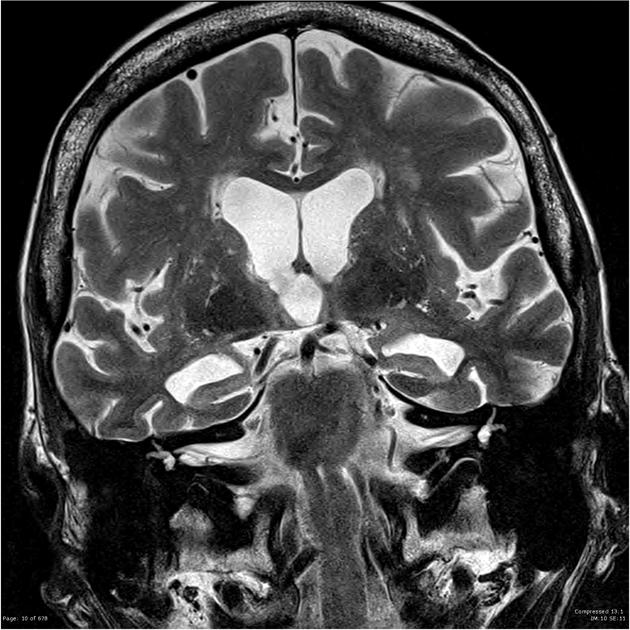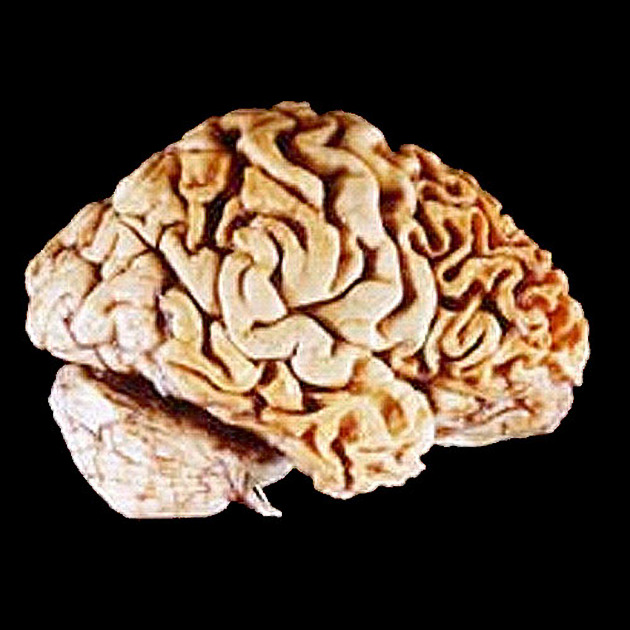language variant of FTLD
Primary progressive aphasia was first described in 1982 and is the umbrella term for the language-variant frontotemporal dementias associated with frontotemporal lobar degeneration (FTLD) .
Clinical presentation
It is an insidious disorder characterized by gradual impairment of speech and language that predates, usually by many years, the onset of more global cognitive deficits.
Pathology
Primary progressive aphasia syndromes were originally classified as either fluent (semantic dementia) or non-fluent (progressive non-fluent aphasia). However, a third clinical entity (logopaenic dementia) has since been characterized, which actually represents an uncommon clinical variant of Alzheimer disease .
It is, therefore, important to note that this group is not only clinically heterogeneous but also is the result of a number of pathological processes, including in a minority of cases Alzheimer disease .
Subtypes
The clinical subtypes of primary progressive aphasia include :
- agrammatic variant primary progressive aphasia (also known as progressive nonfluent aphasia)
- semantic variant primary progressive aphasia (also known as semantic dementia)
- logopaenic variant primary progressive aphasia
Inclusion criteria :
- most prominent clinical feature is difficulty with language
- these deficits are the principal cause of impaired daily living activities
- aphasia should be the most prominent deficit at symptom onset and for the initial phases of the disease
Exclusion criteria :
- pattern of deficit is better accounted for by other nondegenerative nervous system or other disorders
- cogntive disturbance is better accounted for by a psychiatric diagnosis
- prominent initial episodic memory, visual memory, and visuoperceptual impairments
- prominent, initial behavioral disturbance
Siehe auch:
- neurodegenerative disease
- Frontotemporale Demenz
- semantic dementia
- frontotemporal lobar degeneration (FTLD)
- Morbus Alzheimer
- transcortical sensory aphasia
und weiter:

 Assoziationen und Differentialdiagnosen zu language variant of FTLD:
Assoziationen und Differentialdiagnosen zu language variant of FTLD:

